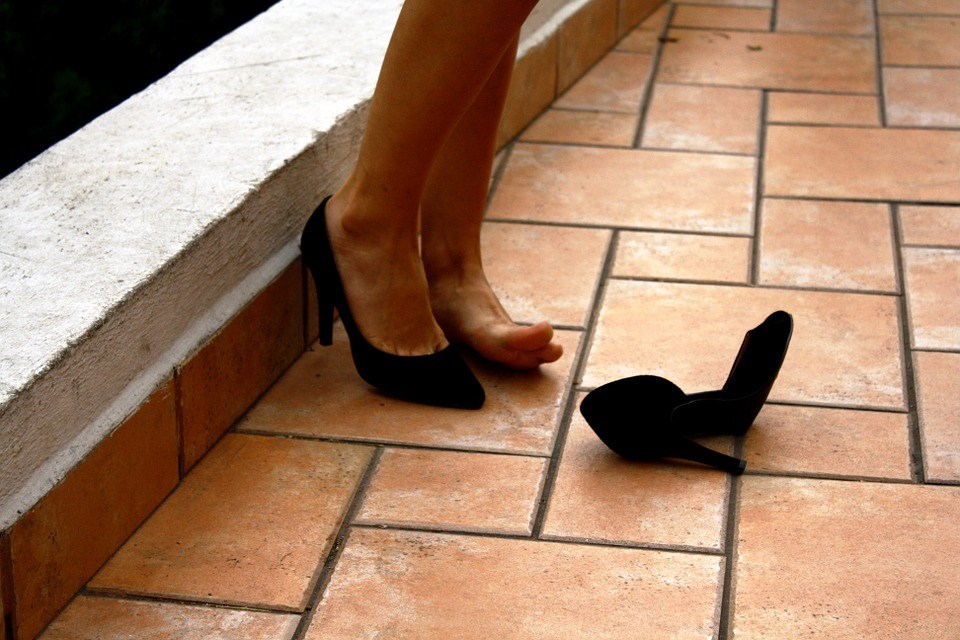Last week, Premier Christy Clark vowed to put an end to dress codes that force women into wearing high heels at work.
There is a long list of reasons to oust rules that boost the shoes, including that they create varicose veins, cause bunions, damage knees, mess with backs, injure feet and, in some cases of extended daily use, break ankles.
Google the risks and you’ll probably be horrified (I was). If you’re a woman, logic may not stop you from wearing heels (I can’t bring myself to toss my pretty shoes). But, regardless of how you feel about heels and whether you wear them or not, I want to urge you to pause for a minute and think about shoes.
Why? Because stunning waitresses in heels are a fixture of Vancouver’s most popular restaurant chains and because this is about so much more than their feet (and yours).
Like me, I’m sure many of you have dined at these restaurants, maybe even chatted about feminism with friends or shared a meal with a women you admire there — without giving a second thought to the sexist rules or expectations that may be debilitating the bodies of the women shuttling back and forth to get you food.
I’ve been guilty of this too many times to count, even though I’ve been a feminist for as long as I can remember, long before Beyonce and Emma Watson made it cool.
So, for me, the recent attention on high heels is a reminder to question the way in which we accept things — like expectations that certain women wear high-heeled shoes — even as they eat away at gender equality, pushing women into precarious positions as they try to stand side-by-side with men on two feet.
Green MLA Andrew Weaver introduced a bill in the B.C. legislature to ban sexist footwear requirements in the workplace on International Women’s Day because he was “dumfounded”by reports of restaurants forcing heels on waitresses, even when their feet were bleeding. It was a “no-brainer,” he said.
The move prompted Premier Clark to take to Facebook to decry such dress codes as “old-fashioned” and “unacceptable” in 2017,even as her government has held back on issues making it hard for women to gain equality in the workplace and in other challenges in their daily life.
Take the legal aid system. B.C. spends less per capita on legal aid than the national average and women are bearing some of the cost. West Coast LEAF, a Vancouver-based legal advocacy group focused on women’s equality, gave the B.C. government a D for its progress on women’s access to justice between 2015 and 2016. Women struggle to get legal aid, except in situations of violence, even though they can’t afford a lawyer for “everyday matters like divorce or the division of property,” the report card said.
I covered this and other gender issues you can consider when voting in the May provincial election in my last column, but there are dozens of constraints unrelated to policy that each of us may be placing on women and girls everyday.
Gender stereotypes are so powerful that, by age six, girls believe they are not as smart as boys. Later in life, women are perceived as less capable of making decisions, less intelligent and less authoritative, regardless of how their qualifications compare with those of men.
A twitter thread that went viral last week highlighted the point. In it, a man explained how customers were “rude” and “dismissive” towards him when he a signed off with the email signature of a female co-worker for two weeks. He was doing the exact same job.
“It f***ing sucked,” he tweeted.
Each of us can change this. We can compliment a girl on her intelligence, rather than pointing out how cute or pretty she is. We can pressure restaurants to change their dress codes or our government to work on women’s equality. And we can rethink the way we interact every day.
I asked you to pause and think about heels because of the assumptions each of us, women included, make or the issues we ignore that place constraints on and weaken women and girls. In 2017, it’s well past time we throw them off.



